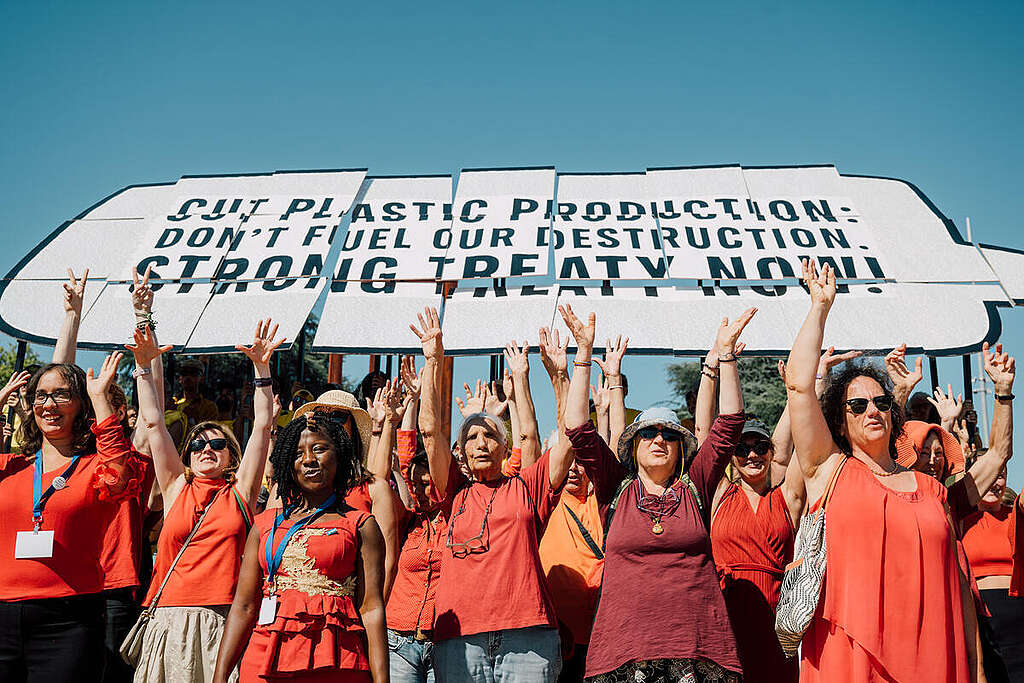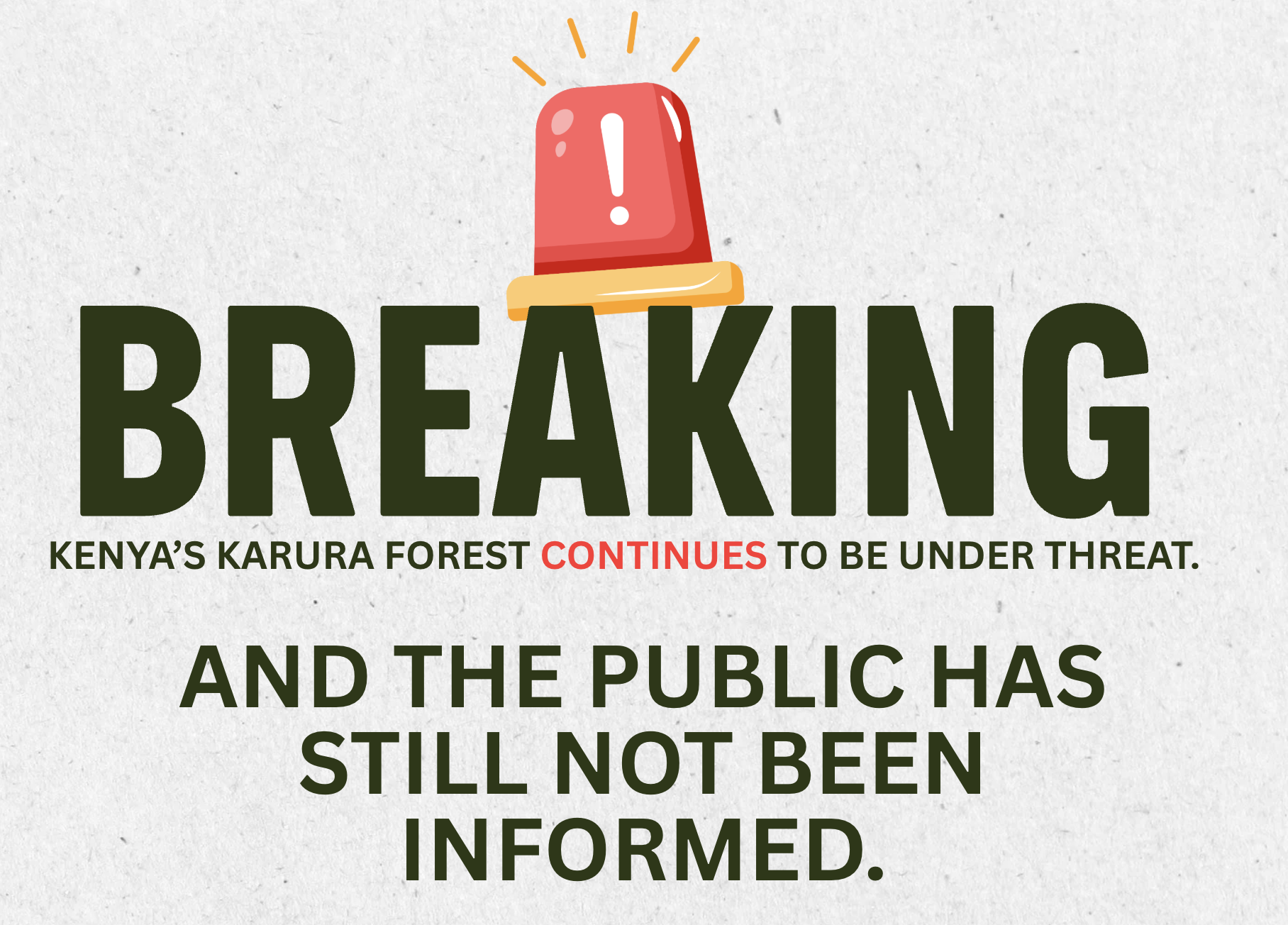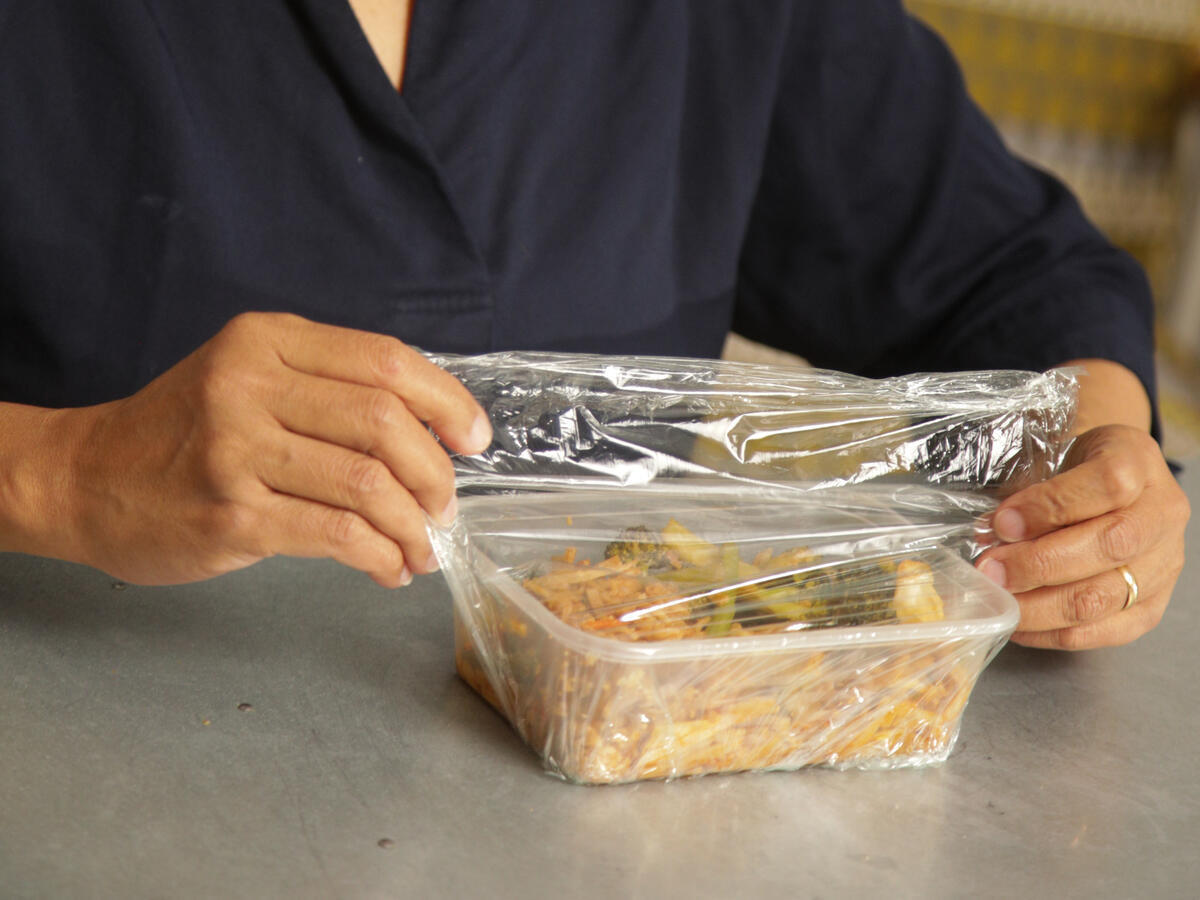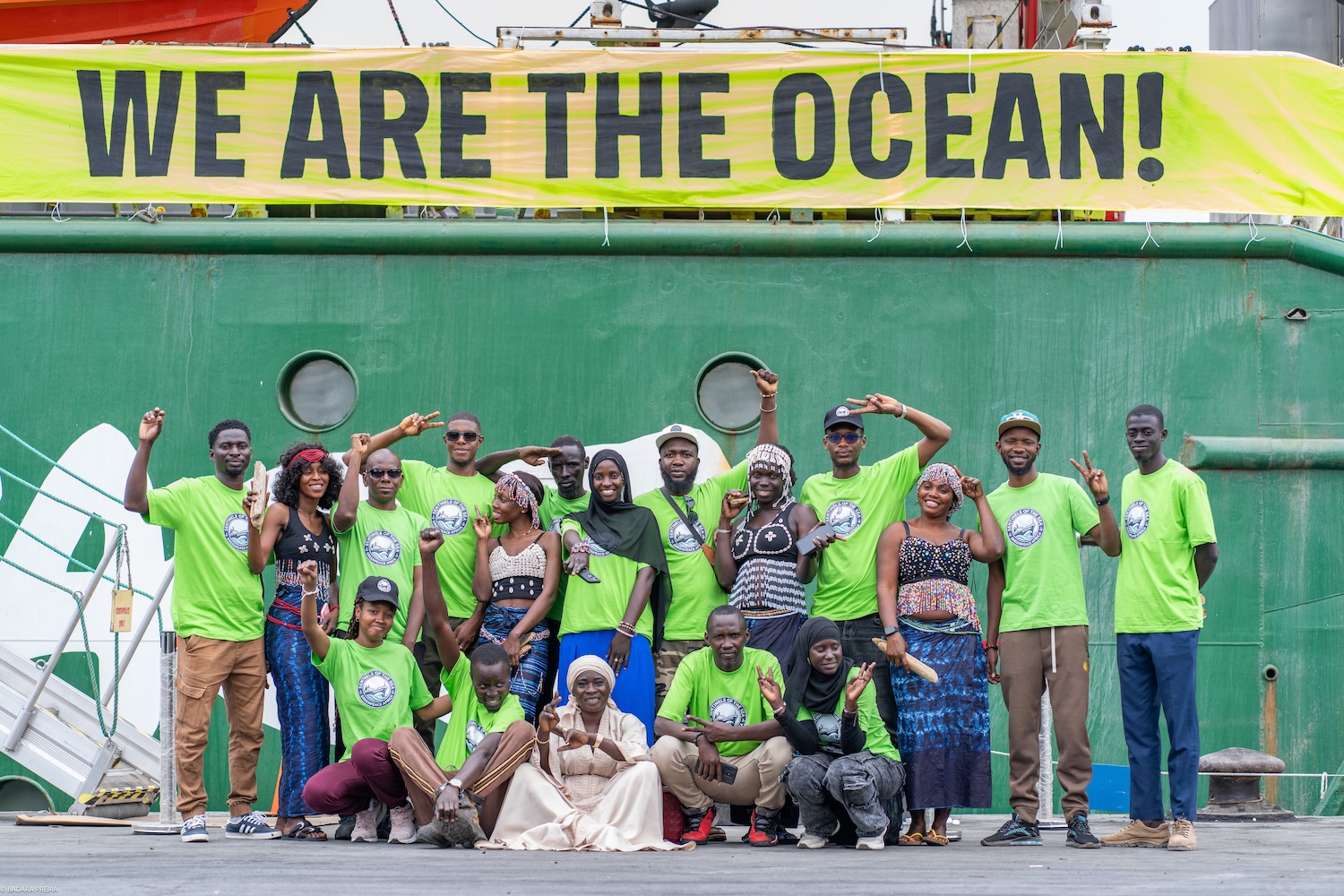August 5th, 2025 Geneva, Switzerland – On the day the final round of negotiations for a Global Plastics Treaty starts, hundreds of citizens and civil society organisations from across the world gathered at Place des Nations in Geneva to demand an ambitious and legally binding treaty that puts people and the planet before polluters.

The demonstration, organised by Greenpeace Switzerland and the Break Free from Plastic movement, the Gallifrey Foundation and a growing coalition of environmental and social justice groups, kicked off the last phase of the UN negotiations taking place from 5 to 14 August at the Palais des Nations. Protesters wore yellow, red and orange to symbolise the urgency of the crisis and the danger posed by the unchecked production of plastic, which is overwhelmingly derived from fossil fuels.
“As host country of the negotiations on plastic pollution, we count on Switzerland to stay firm on the ambition of the future Global Treaty. With plastic production set to triple by 2050, the treaty would be bound to fail without a global target to reduce plastic production. We need to end the age of plastic to protect our health, our communities and our planet” said Joëlle Hérin, expert in consumption and circular economy at Greenpeace Switzerland.
For African nations, this treaty represents a critical opportunity to address the disproportionate burden of plastic pollution on the continent. Despite generating less plastic waste per capita than developed nations, African communities suffer severely from the environmental and health impacts of plastic pollution, exacerbated by waste dumping from Global North countries.
Hellen Dena, Greenpeace Africa’s Pan-Africa Plastics Project Lead, said:
“Our communities are drowning in plastic waste while contributing just a fraction of global production. We need a treaty that addresses plastic pollution at its source by cutting production rather than shifting the burden to those least responsible. Governments must not side with the petrochemical industry as we negotiate the Global Plastics Treaty. We cannot let oil-producing countries, at the behest of big oil and petrochemical companies, dominate and slow down the treaty discussions and weaken its ambition.”
Plastic production is expected to triple by 2050 if no global action is taken. Since China’s 2018 ban on plastic waste imports, Africa has become an increasingly targeted destination for plastic waste exports, creating toxic dumping grounds that contaminate soil, water sources, and air in local communities. Scientists are only beginning to understand the long-term effects of plastics on our health. According to UNEP, there are over 16,000 chemicals used and present in plastic, at least 4,200 of which are highly hazardous to human and environmental health.
“Any effective treaty must ensure a just transition for waste pickers across Africa. An estimated 20 million people worldwide work in informal waste collection, with a significant portion in Africa. Many African initiatives are already pioneering plastic-free alternatives, reuse systems, and community-led waste management solutions that could serve as models globally” added Dena.
African nations have demonstrated leadership at previous negotiations, with countries such as Rwanda and Ghana advocating for progressive positions on production caps and the phase-out of problematic plastics. Greenpeace Africa calls on Member States to demand cuts in plastic production through a phase-out approach, from production to disposal, to protect the environment and human health of Africans. They must also call for strengthened synergy with the Basel and Bamako conventions that will play a critical role in eliminating Africa’s added burden of plastic waste dumping.
Notes to the editor
- Photos from the mobilization are available here
About Greenpeace – Greenpeace exists because this fragile earth deserves a voice. Founded in 1971 by a group of concerned citizens who sought to halt nuclear weapons testing by the United States military off the coast of Alaska, Greenpeace now operates in 55 countries and territories across the globe. Our mission is to protect biodiversity in all its forms and to address the climate crisis with the urgency it demands. We are guided by our core values of non-violence, personal accountability, independence, and a commitment to highlighting not only environmental problems but also creating practical and hopeful solutions.
About BFFP — #BreakFreeFromPlastic is a global movement envisioning a future free from plastic pollution. Since its launch in 2016, more than 2,700 organisations and 11,000 individual supporters from across the world have joined the movement to demand massive reductions in single-use plastics and push for lasting solutions to the plastic pollution crisis. BFFP member organisations and individuals share the values of environmental protection and social justice and work together through a holistic approach to bring about systemic change. This means tackling plastic pollution across the whole plastics value chain – from extraction to disposal – focusing on prevention rather than cure and providing effective solutions. www.breakfreefromplastic.org.
Greenpeace Africa Press Contacts:
Ferdinand Omondi, Communication and Story Manager, +254 722 505 233, [email protected]
[email protected]
Global Press contacts:
Greenpeace International: Angelica Pago, Global Comms/Media Lead, +63 917 112 4492, [email protected]
Greenpeace Switzerland: Fanny Eternod, Media Relations for Switzerland, +41 78 662 07 31, [email protected]



